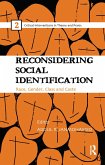Throughout history, governments have sought more efficient ways to count, tax, allocate, monitor and order the activities of their citizens. Watner and McElroy have compiled a collection of essays that present the historical, religious, moral and practical arguments against government enumeration. The articles look at several government naming practices and the census and discuss how the collection of seemingly innocent data could be used to commit abuses. Section one recounts the history of what we now call national ID. Section two covers contemporary technologies, such as microchips, email tracking and camera-based surveillance systems, applying to each the test, ""How would this catch terrorists or other criminals without destroying the rights of peaceable people?"" Section three imagines a future of rebellion against a government tracking its citizens in the name of security, but offers some hope that American culture does not lend itself to the fanatical control that a high-tech national ID system could make possible.
Hinweis: Dieser Artikel kann nur an eine deutsche Lieferadresse ausgeliefert werden.
Hinweis: Dieser Artikel kann nur an eine deutsche Lieferadresse ausgeliefert werden.








